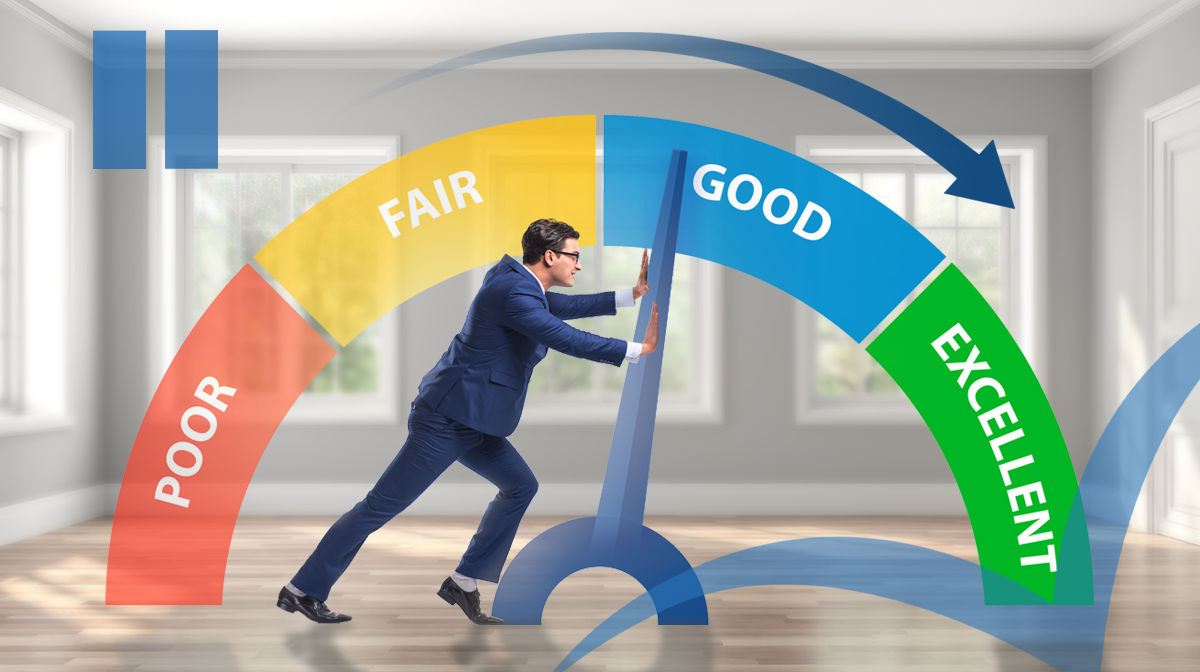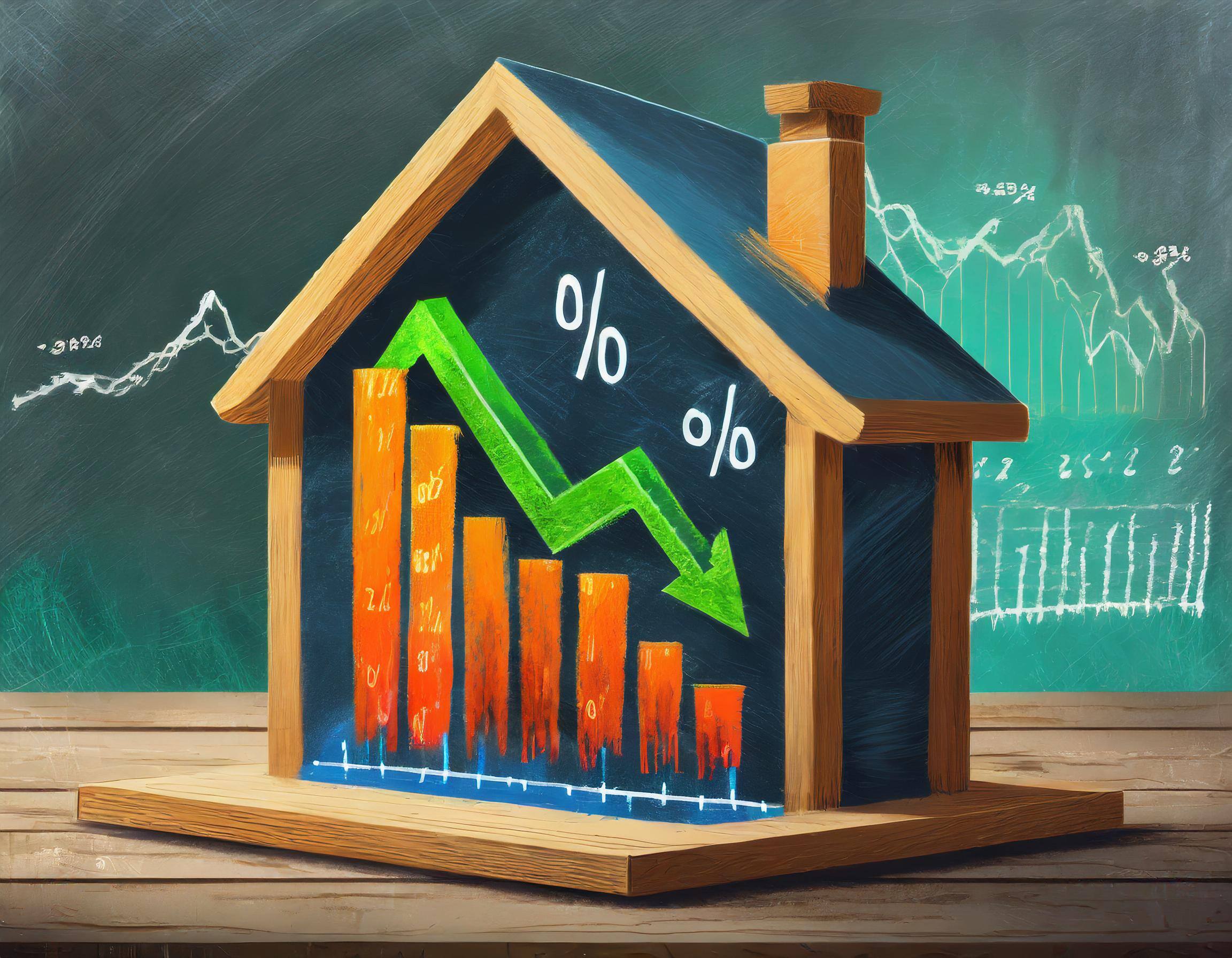Home Buying on Pause While You Improve Your Credit Score?
Just as you were dreaming about buying a home you see your credit score and it’s, well, a lot lower than “ideal.” Do you put your home-owning dreams on pause until you improve your score?
How long will that take? And exactly what credit score should you work toward?
To answer those questions, we’re going to take the mystery out of credit scores and highlight the basic steps to build or improve a score. Finally, we’ll explain how you can realize your home owning dream more quickly - without spending months and months raising your score.
So before hitting pause on house hunting, read on.
What is a Credit Score
Credit scores can seem very mysterious but they simply represent how responsible someone is with other people’s money. Every time you borrow money, a record is kept of how much was borrowed and how it was paid back.
The record is in a central location. So, whenever you want to borrow money, a lender (car dealer, credit card company, mortgage company) can access your record to see how likely you are to pay back the money as you agreed, based on your history.
The credit score itself is a number representing the history of your credit habits. Lumping those habits into a score gives a quick snapshot of the risk you represent as a borrower. If the score is low, that tells a lender that the risk to lend to you is higher.
The basic ingredients of a credit score are:
- Borrowing and repaying different loans* over a number of years. At least two+ years to have a ‘track record’. (*car loan, credit card, student loan)
- Making all payments on time as agreed.
- Maintaining revolving accounts (like credit cards) in open status for a number of years.
- Taking advantage of your available credit as little as possible (think small balances.)
- Using and repaying small amounts of revolving credit regularly.
If any of the basic ingredients of your personal credit history go wrong, you’ll end up with a low credit score. But you can improve your credit score, and you don’t have to pay someone a fee to do it (Spoiler alert: that doesn’t work.)
Improving Your Credit Score
Even when something goes wrong and your credit score falls, there’s still hope. Take a look at the things you can do to improve your score - and pay attention to the things you should not do.
You should:
- Stop using credit cards while you pay down outstanding balances.
- Make every payment on time - or early.
- Maintain steady employment.
You should NOT:
- Pay any collections or charge-offs while you’re trying to improve your credit score.
- Apply for any new credit (no credit cards, furniture/appliance purchases, car loans.)
As you pay down credit card balances and make all your payments on time, your score will gradually increase over time. While paying off collections/charge-offs and opening new credit are actions that will lower your credit score.
Note that maintaining steady employment is on the to-do list. It goes a long way to reassure lenders that you’re reliable and have the ability to make payments. This does not mean you can’t change jobs if the new job is a natural progression in your profession or increases your earnings.
Keep Good Records
As you work to improve your credit score, there’s another important step you need to take: gather documentation about your credit issues.
Providing a detailed explanation of any reported credit issue is a lender requirement. And they require documentation to back up the explanation. Now is the time to go back and collect documentation on any big credit issues you’ve had and have them available in digital form, if possible.
How High Does My Credit Score Need To Be?
Finally, it’s time to talk about what credit score you really need.
We’ve explained how lenders see a lower score as a higher risk of on-time loan repayment. That’s why loans made to people with lower credit scores carry higher interest rates. Lenders charge a higher interest rate to compensate or offset that risk.
Yes, higher interest rates mean higher monthly payments.
Understanding this leads many people to opt for a strategy of chasing a higher credit score to get the best interest rate possible before they buy a home. But it takes time to substantially increase a credit score and a lot can happen during that time.
Like rising interest rates and home prices. Higher home prices mean larger down payments, larger mortgages, and higher monthly payments.
So how long do you work on raising your credit score? An how will you know when it’s high enough?
To find your answer to these questions, you’ll need a strategy that’s unique to your situation. At Point Equity, we work with borrowers to craft the best strategy based on their individual credit and saving history. Our goal is to put people on the path to realizing their dream of owning a home as soon as possible.
The answer we give most often when asked how high a credit score needs to be is “right where it is now,” when considering current interest rates, home values, and the maximum mortgage you can afford.
Once we help our clients determine the strategy that’s right for them, they’re ready to find their dream home. And we send them away with one final list of Things Not to Do:
- Quit your job.
- Apply for new credit cards.
- Buy a car.
- Buy new furniture.
- Miss or be late on any payments.
- Co-sign a loan for anyone.
- Spend savings on a big purchase.








